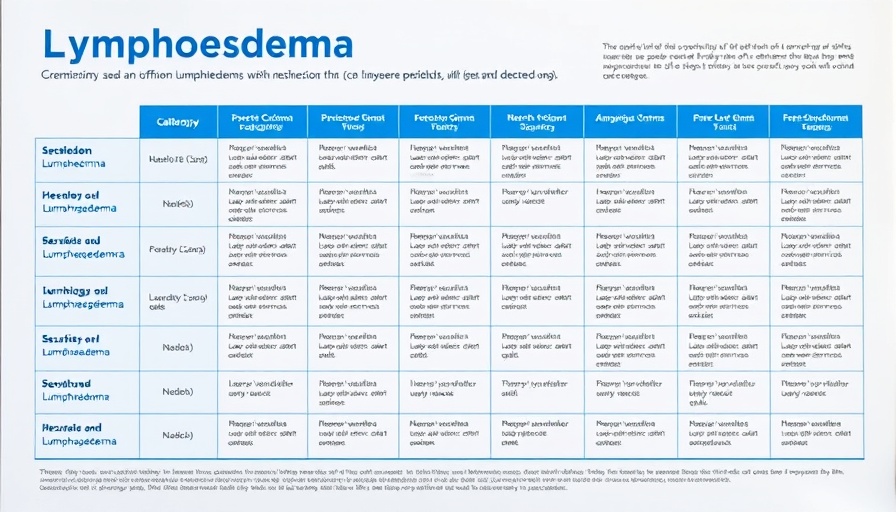
Understanding the Mechanisms Behind Lymphedema
Lymphedema is a persistent condition that results from the malfunction of the lymphatic system, leading to significant fluid accumulation and swelling in the affected areas. Patients often face severe consequences, such as restricted mobility and psychological distress, highlighting the need for effective therapeutic strategies. This chronic inflammatory disease necessitates a deeper understanding of its underlying mechanisms, which include signaling pathways, cellular communication, and oxidative stress.
Revolutionizing Treatments Through Signaling Pathways
Recent advances in the study of signaling pathways—specifically RAS/MAPK, PI3K/AKT, VEGF-C/VEGFR-3, HGF/MET, and TGF-β1—are proving crucial in unraveling the complexities of lymphedema. As key players in the pathogenesis and progression of this condition, these pathways help to illuminate potential therapeutic targets that can be employed to alleviate the symptoms of lymphedema. With targeted therapies being developed, understanding these pathways becomes imperative for effective treatment and for maintaining cellular health.
Oxidative Stress: A Hidden Enemy
The interaction between oxidative stress and chronic inflammation forms a vicious cycle that exacerbates lymphedema. Oxidative stress damages lymphatic endothelial cells (LECs) and impairs the formation of cell junctions, which are crucial for the proper function of lymphatic vessels. By focusing on oxidative stress reduction through interventions such as autophagy benefits and NAD+ boosters, we may be able to counter some of the long-term effects of this condition.
The Role of Cell Communication in Disease Progression
The communication between various cellular entities—T-cell subsets, macrophages, dendritic cells (DCs), and fibroblasts—is instrumental in the progression of lymphedema. By facilitating interactions among these cells and LECs, we can gain a better understanding of the disease mechanism and explore avenues for regenerative medicine. Enhancing the function of stem cells and potentially utilizing cellular rejuvenation techniques may provide a pathway towards reversing senescence and improving outcomes for patients.
Future Perspectives on Lymphedema Therapies
As research continues to evolve, the hope for multitarget therapeutic strategies that restore lymphatic homeostasis offers a promising outlook. By integrating findings on signaling dysregulation, cell junctions, and cellular cross-talk, we pave the way for innovative treatments. Exploring the benefits of mitochondrial function and ongoing studies in regenerative medicine will be pivotal in transitioning from understanding lymphedema to developing viable treatment options.
Takeaway Insights: Practical Knowledge for the Readers
For health-conscious individuals aged 30-55, being informed about the mechanisms of lymphedema and its implications can empower healthier lifestyle choices. Awareness of cellular health can influence personal decisions regarding nutrition, physical activity, and overall well-being. Utilizing developments in the fields of cellular repair and regenerative medicine can inspire proactive approaches toward health maintenance.
The future of lymphedema treatment looks brighter with ongoing research efforts. Understanding the biological complexities might not only improve therapies for lymphedema but could also enhance approaches to anti-aging and cellular repair. Make sure to stay informed about new advancements in this crucial field.
 Add Row
Add Row  Add
Add 




Write A Comment